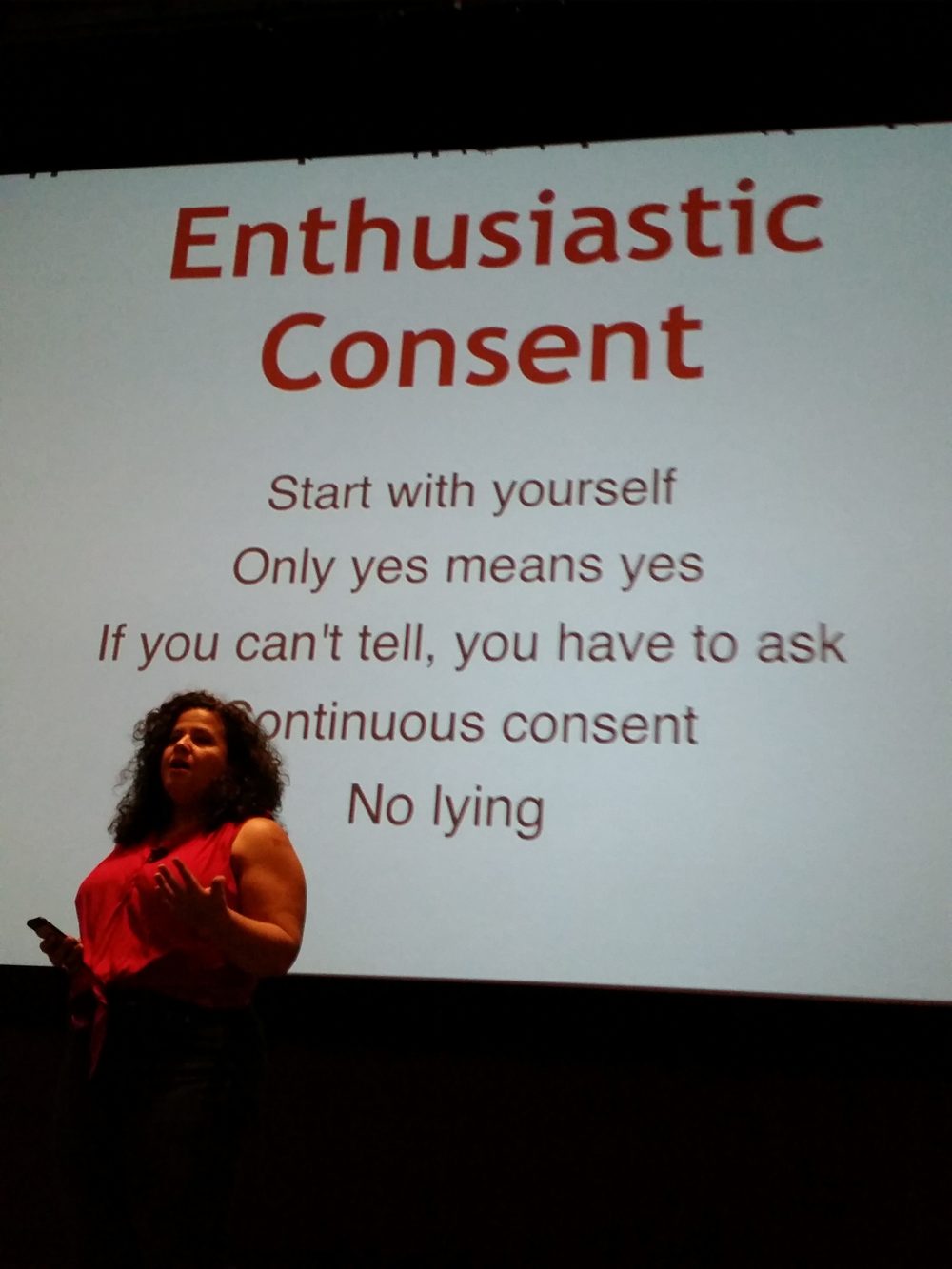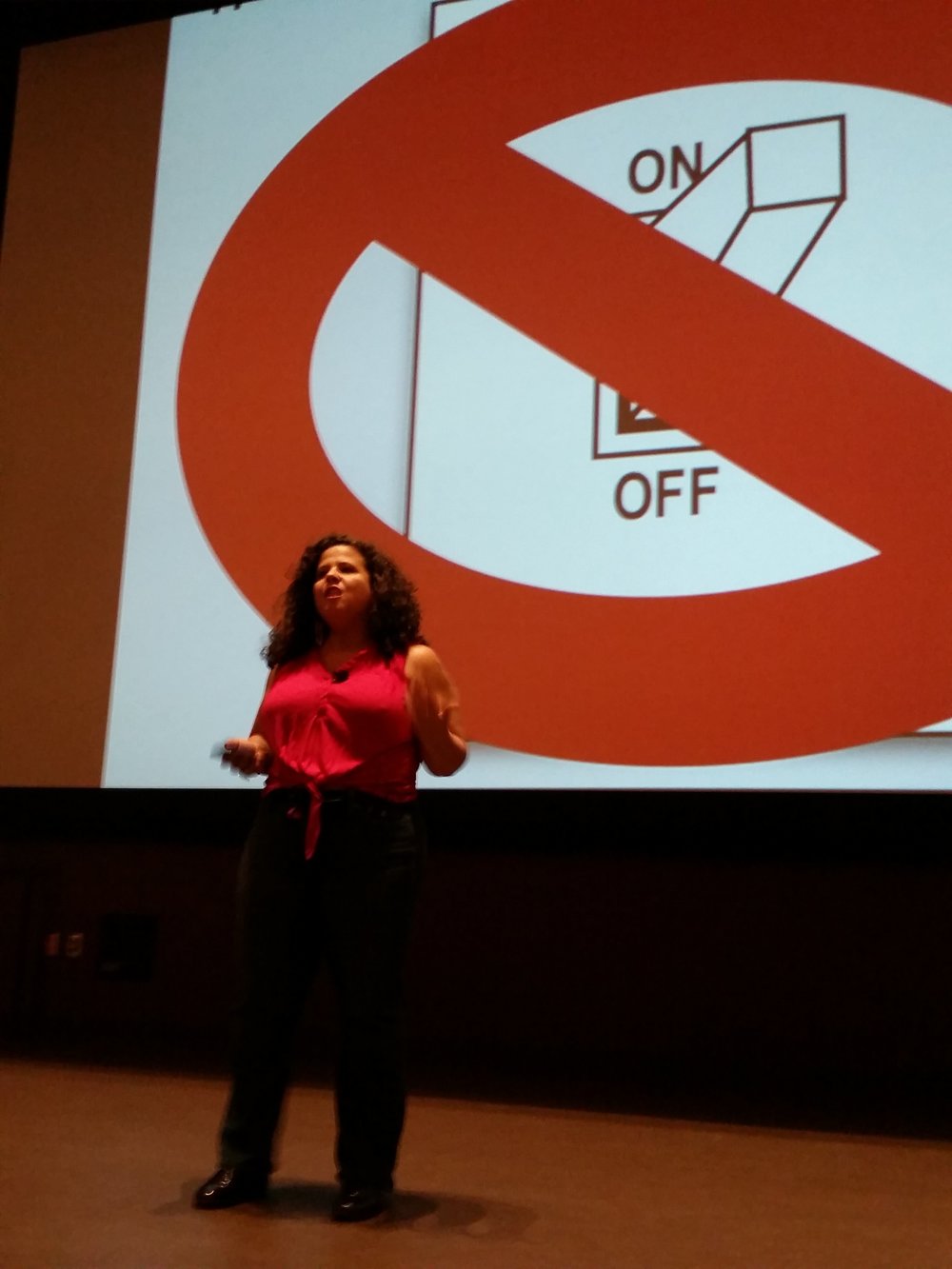Sexual Consent, Female Sexuality as a Commodity, & Jaclyn Friedman
/“We live in a culture in which women’s sexuality is a commodity…women being consumed by men.”

Jaclyn Friedman recently took the stage at San Diego State University to speak about Sex in America: Beyond Prudes, Sluts, & Players. She is a feminist author and activist, and I first became familiar with her through her organization WAM! (Women, Action, Media). She is dynamic, funny, bright, and down-to-earth in her approach to some pretty heavy topics including sexuality, sexual consent, and rape culture.
So what does “female sexuality as a commodity” mean? It means that women’s sexuality is something to be bought and sold or bargained for, and that this mentality surrounds a lot of the problems that women and our society have around sex. For example, women’s virginity is approached as something to be protected and treated like a precious jewel, because females should only “give it away” to the right man who has earned it. There is, however, no comparable values on male virginity.
Females are instructed to be gatekeepers to their sexuality, but also socialized to be sexually attractive and seductive. It’s not unusual for a man who sexually wants something from a female to keep asking or just nonverbally pushing those boundaries until she gives in. Indeed, men are taught to keep pushing boundaries to get what they want, and under the commodity model of female sexuality, that is fine. Jaclyn went on to share how different women’s bodies have different values and worth in the commodity model, and this model polices both women and men’s gender expression (think men who are ridiculed for appearing female-like).
Jaclyn presented a “new” model for sexuality, one she calls “Creative Collaboration.” This model of sexuality is based on open communication, clear consent, and respect of fellow humans. It is also based on awareness and paying attention the whole time. For example, if you can’t tell whether the other person is interested in what you’re doing sexually, or interested in moving forward, then you have to ask. And don’t assume you can read their verbal signals unless you’ve been with them for a long time, because men in particular don’t do that well. Her whole premise of this model lies with the idea that both partners are freely and actively involved in the sexual encounter. Because, why would we ever want to have a sexually experience with someone who wasn’t freely and actively involved?!?

However, this is more difficult than it sounds, because as a society we have such discomfort with frank, honest, open conversations around sex. It’s awkward. And apparently we fear awkwardness and value “spontaneity” more than safety, responsibility, ethics, respect, integrity, and clear communication. But to quote Jaclyn, “You don’t die from awkwardness.” I believe that this is where mindfulness is necessary, and studying our own patterns and fears, so that we can learn to sit with the discomfort of doing what’s right, even when it feels icky inside.
This kind of communication is also difficult because men are often taught that they have a social license to be sexual with a woman in the way they want. And women are taught to be passive, nice, or at least not to rock the boat. This leads to situations where one person is pushing and the other is acquiescing, without any recognition between them that this pattern is happening. This is also where mindfulness comes into the picture, because without awareness of what we’ve been taught, how gender roles vary, and that sexual situations are fraught with miscommunication, people keep plowing ahead sexually as if they can be certain all is fine.
Jaclyn’s lecture resonated deeply with my own beliefs, and what I wrote above was a blending of our words. She also offered a few gems in her practical, honest, and fair approach to this complicated topic. First, she didn’t take the standard feminist approach that any sex under the influence of alcohol cannot be consensually. She accurately stated that a lot of sexual encounters happen while drinking, and a lot of GOOD sexual encounters. But there is a fine line between buzzed and smashed, and unless you know that for yourself and the person you’re hooking up with, then you better be careful and err on the side of no sexual contact. She also encouraged sexual experimentation especially for women. Sometimes after a new sexual encounter a woman might realize that she didn’t enjoy that specific experience. And that’s OK. It’s more than OK, it’s the only way that we can truly discover what we do and don’t like. Jaclyn stated that we tend to confuse bad sex with a crisis or assault. It’s OK to choose to have a new sexual experience, and have it end up not being our cup of tea; there’s no shame in that. She also mentioned how it’s OK to love things but also criticize them. For example, just because a TV show or movie isn’t perfect in its level of gender, sexual, or social awareness, doesn’t mean we can’t still love and appreciate other parts of it.
These “gems” might seem minor or inconsequential, but as a fellow sex educator sometimes embroiled in the muck of this controversial topic, I so appreciated Jaclyn’s commitment to fairness, compassion, and honesty. I highly recommend her fair and practical version of feminism and approach to female sexuality!
~Dr. Jenn Gunsaullus, San Diego Sexologist, Sexual Health Speaker, Sociologist









































